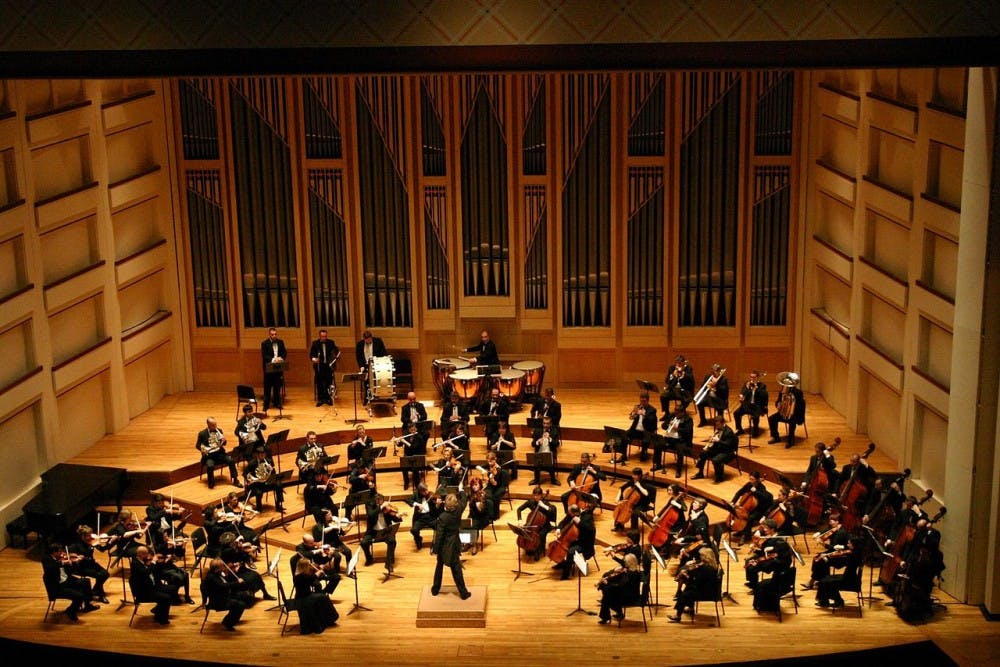By Kelly Burns, Staff Writer
Ricardo Averbach knew something was off. When the Miami professor and conductor of the symphony orchestra taught his Miami plan classes, he saw a divide between students, domestic and international.
The division between these two groups has been a continuing problem at Miami, one that the American Culture and English program (ACE) was formed to solve.
Averbach, who is from Brazil, decided to team up with the ACE program and integrate international undergraduate students into the symphony orchestra on campus.
The ACE Program was founded by Miami in 2011. It includes a series of classes designed to help international students get a firm grasp on the English language and adjust to life in the United States.
But in the five years since ACE was started, there remains a separation between students.
Averbach knows the challenges a foreigner can face in the United States, and he saw international students struggling to integrate.
And then he had a thought.
The arts could be used as a bridge between cultures.
"They say music is the universal language," Averbach said. "Okay, fine. But the arts are a great way to integrate students."
The symphony orchestra has included international graudate students and faculty before, but it has never encompassed international undergraduate students.
First year Chinese students from the ACE program, Julie Yang and Lexie Wang, are two of the students involved with orchestra. The symphony orchestra is considered a class and is mainly comprised of high-level musicians.
Enjoy what you're reading?
Signup for our newsletter
Wang decided to be a part of the orchestra simply because she loves her instrument, the violin.
"If I could not play it, I would be very sad," Wang said. "Orchestra gives me a way to practice every week."
The orchestra, though, provides more than just an outlet for musical talent. The group socializes and participates in activities such as hosting ice cream parties or going to plays together outside of class.
"It's not only about making music together," Averbach said. "And I think there should be much more of that."
One of the goals of the cooperation between ACE and the orchestra is to help domestic and international students interact and help each other, something that many international students, including Wang and Yang, have had difficulties with on campus.
As part of the ACE program, international students live in the same dorms as domestic students. This is supposed to foster interaction and integration between the two groups. But it isn't always effective.
"Even if we want to talk, they might do their own work or play their own game, and they don't want to talk to us," Yang said.
Though both Yang and Wang said that they found domestic students warm and open to interaction, they find it hard to connect because of the language and cultural barriers.
Yang has found that it is hard to relate to domestic students because they cannot share experiences outside of the few months they have spent at the same college.
The contact is often limited to questions like "What's your name? What's your major? Do you have any hobbies?"
Averbach noticed this superficial interaction and worked to change it with this cooperation between ACE and the orchestra.
In orchestra, the class is almost entirely participation. Students are interact with each other instead of staring blankly at a book or screen in front of them.
Wang has found it easier to interact with domestic students when they are in the orchestra.
"We can talk about orchestra, so it's easier to share an experience," Wang said.
Being in orchestra and bonding with domestic students has been helpful to Wang and Yang. With registration coming up, domestic students have been useful in helping advise the girls and other students about which classes to take next semester.
The next concert, "An American Premiere," will be held Nov. 21 in Hall Auditorium.




